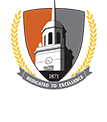Well before traveling to any foreign countries on business or meeting with individuals from foreign countries, Buffalo State employees need to consider both Export Control requirements and Foreign Meeting disclosure requirements.
Export Controls Compliance
The United States federal government has enacted laws that regulate the disclosure, shipment, use, transfer or transmissions of information, items, specific technology, software, and services to foreign persons and foreign countries for reasons of national security and foreign policy. These laws may also restrict transactions with prohibited countries, entities or persons. These laws are applicable to U.S. citizens, and are relevant to the university community, especially in respect to travel, research, and dissemination of information conducted by individuals alone and/or in affiliation with the university. The laws applies to both physical and "deemed" exports of items, information, and technologies.
In recent years, penalties have been enhanced to impact not only individuals, but also institutions; thus, universities are required to implement export control programs to educate their employees and to facilitate the export control license application process when necessary and appropriate.
Fundamental Research
Many international research initiatives by our faculty will be covered by the fundamental research exception:
"No license is required to disclose to foreign persons information that is published and which is generally accessible or available and shared broadly in the research community." If collaborations and presentations do not meet the criteria of “fundamental research,” faculty research may require an export controls license. Any restrictions like the following are considered "red flags" if they are applied to a research project or collaboration:
• forbids the participation of foreign persons;
• gives the sponsor a right to approve publications resulting from research;
• restricts participation in research to certain individuals; or
• restricts access to and disclosure of research results.
University Personnel
All University faculty and staff are required to submit the Export Controls Foreign Travel Disclosure Form for Use by Academic Affairs Faculty and Staff a minimum of two weeks prior to international travel or commencement of projects where they will work with foreign persons, educational institutions, research meetings, or businesses. Routing instructions are provided on the form. If you are planning to travel to a country subject to U.S. sanctions, please plan ahead and notify us 1-2 months in advance to avoid problems or delays.
Buffalo State Research Foundation
SRF Export Controls Fact Sheet
Export Controls Compliance at Buffalo State, Sponsored Programs Office
New York State issued a Statewide Policy on Meetings with Foreign Government Representatives on September 2, 2025. In compliance with this policy, Buffalo State has been directed by SUNY to disclose for review and approval any meetings with foreign government representatives on matters not related to routine functions in the normal course of university business. In addition, the policy requires Buffalo State to disclose for review and approval all meetings or engagements—routine or not—involving foreign government officials or political representatives from countries designated by federal regulation as a “foreign country of concern,” which currently are China, Iran, North Korea, and Russia. Employees of foreign public universities are included in the definition of “foreign government representatives:”
The following activities are considered routine business and are excluded:
- Processing international student admissions and enrollment, including routine communications with international applicants and their families.
- Administering and managing study abroad and student exchange programs, including processing student exchange/study abroad paperwork.
- Day-to-day correspondence by Buffalo State faculty, researchers, and staff with foreign faculty and researchers on projects once they have been approved.
- Routine campus-based student services for international and/or study abroad students (housing, health, visa support).
- Implementation of previously approved education agreements, without material renegotiation or foreign government involvement.
- Basic science research engagements, particularly with foreign private universities.
- Academic collaborations at the faculty level.
The following meetings are included:
1. With Foreign Countries of Concern (China, North Korea, Iran, Russia)
- Any meetings or engagements—routine or not—involving foreign government officials or political representatives from countries designated by federal regulation as a “foreign country of concern.” As of September 22, 2025, those countries are China, Iran, North Korea, or Russia.[1] This includes officials meeting on behalf of Universities.
[1] “Foreign country of concern” is defined in 15 C.F.R. § 231.102 to include: (a) any “covered nation” under 10 U.S.C. § 4872(d); and (b) any additional country the Secretary of Commerce designates, in consultation with the Secretaries of Defense and State and the Director of National Intelligence.
2. With all other Foreign Countries
- Formal negotiation of new agreements with foreign public universities or those with known foreign government connections.
- High-level meetings with known foreign government officials or political representatives. If in doubt, err on the side of reporting.
- In-person delegation visits to/from Buffalo State involving non-routine government-affiliated organizations. For this purpose, foreign public universities should be considered government-affiliated organizations, but the visit/event may fall into another reporting exclusion.
- Research collaborations with foreign government involvement or sensitive technology implications (e.g., cybersecurity, defense-adjacent fields, critical technologies).
- Non-routine meetings with representatives of foreign ministries of education, embassies, or consulates.
- Joint funding discussions with foreign government agencies.
- In-person delegations from Non-Government Organizations (NGOs) or foundations with known government/political ties.
Approval Process.
Complete and submit the Foreign Meeting approval form to Stephanie Wehrlin in the Buffalo State Global Engagement Office at least 3 weeks prior to the scheduled meeting date to avoid delays. The form will be forwarded to SUNY and the NY State Division of Homeland Security for review.

